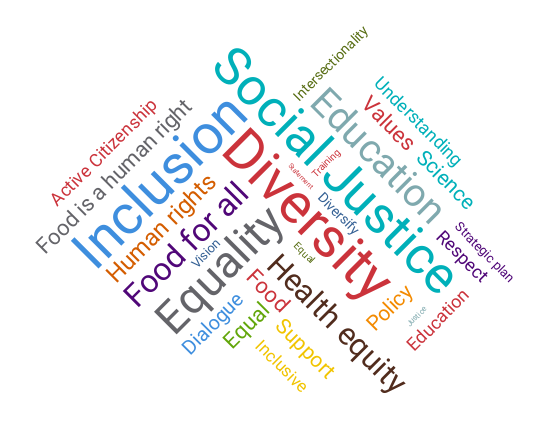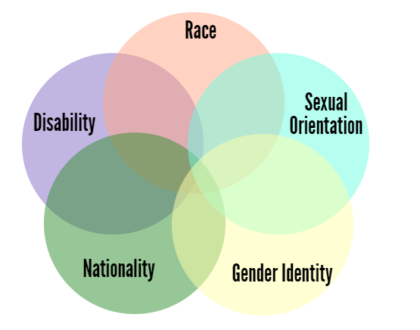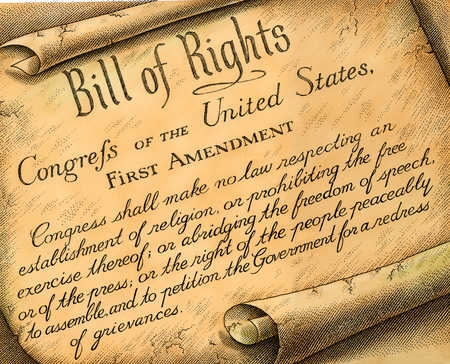Social Justice & Inclusion

The professional competencies help student affairs to better understand students and help them with the issues they face today. The competency areas are used to define what exactly “is student affairs work” and layout directions for the future development of student affairs educators both individually and as a profession. Student affairs professionals have a responsibility to create a welcoming environment where students can succeed regardless of gender, race, socioeconomic background, and sexual orientation. “ It is essential that we incorporate multicultural issues and dynamics into all types of teaching and training; otherwise, our educational interventions may be incomplete, inaccurate or irrelevant” (Schuh, Jones & Torres, p. 397, 2016).
Social Justice and Inclusion is important because most college campuses can have a diverse population but that is not all that it takes to make it “inclusive”. Inclusion is full and equal participation of all groups in a society that is mutually shaped to meet their needs. It is important for Student Affairs professionals to meet the needs of all groups. It is important that we are aware of other groups and cultures so that we can connect and build meaningful relationships with all students. This competency is important to help bring the student community together and make it a better and enjoyable place for all. “Student affairs educators may incorporate social justice and inclusion competencies into their practice through seeking to meet the needs of all groups, equitably distributing resources, raising social consciousness, and repairing past and current harms on-campus communities”(ACPA & NASPA).
Why is Social Justice And Inclusion Important?
It is important because it makes underrepresented students feel a greater sense of belonging. Students who perceive their campus climate as inclusive and nondiscriminatory show a greater willingness to participate. It will build confidence in underrepresented students and they will get the feeling they can achieve greater things as well as their counterparts. Social justice and inclusion can lead to more college satisfaction, students can feel greater comfort and have improved perceptions of the campus atmosphere.
How can we get colleges to increase their Inclusion efforts?
References
Schuh, J. H., Jones, S. R., & Torres, V. (2016). Student services: A handbook for the profession. San Francisco, CA: Jossey-Bass.
Professional competency areas for student affairs educators. ACPA & NASPA. (2015). Retrieved from https://www.naspa.org/images/uploads/main/ACPA_NASPA_Professional_Competencies_FINAL.pdf
Intersectionality On College Campuses

“Intersectionality considers the intersections of identities, such as the intersections of race and ethnicity and social classes, and places these identities in larger structures of inequality” (Schuh, Jones & Torres, p. 208, 2016). They are interconnected because the person, group, or social problem is affected by a number of discriminations and disadvantages. People of these social categories whether it be minorities, women, etc. they face some sort of oppression, although of different categories the issues they face are connected to each other. Intersectionality takes into account individuals overlapping identities and experiences in order to understand the complexity of the prejudices they face. It is a tool that reveals the interworking of power and oppression, it is a way of understanding how people experience the world.

Being aware of intersectionality can help staff and students to embrace diversity on campus to have an understanding of the different cultures, races, genders, and sexualities etc. To Embrace diversity on school campuses, it requires creating and supporting values that encourage students and staff of all backgrounds to interact with mutual respect and support and develop authentic relationships. “Intersectionality is a process of always interrogating and seeking to uncover the edges and underbelly of oppression and marginalization with the accompanying goal of devising strategies to dismantle power and privilege” (Intersectionality: A tool for realizes Human Right. 2015).
Check out this University’s Approach on educating its students on intersectionality: https://www.mtholyoke.edu/teachinglearninginitiatives/intersectionality-classroom
How can Colleges spread the concept of Intersectionality amongst the Campus?
References
Schuh, J. H., Jones, S. R., & Torres, V. (2016). Student services: A handbook for the profession. San Francisco, CA: Jossey-Bass.
(2015). Intersectionality: A Tool for Realizing Human Rights. Retrieved from https://www.newtactics.org/blog/intersectionality-tool-realizing-human-rights
Professional Contexts

The four areas of professional context for student affairs educators are institutional missions campus culture, campus climate and diversity, ethical principles and standards, and legal foundations. All four areas overlap to create a welcoming and safe campus for all college students. Each one contributes to what makes a University a place where staff, faculty, and students can feel exceptional, it creates a better environment. The institutional mission sets the tone for the campus culture. The mission statement is the starting point for building campus culture. The school’s mission statement reflects on the existing campus culture and the aspirations of where the school wants to culture to go in the future. Every Campus has its own culture, campus culture is ever changing and is influenced by time and the diverse people on the campus environment (Schuh, Jones, Torres, p.67, 2016). What sets the tone for campus climate and diversity, is when a college strives to offer students inclusive campus environments, where all feel welcomed and accepted. Ethical principles and standards “prescribe what is considered good or bad and right or wrong behavior. Ethical principles rely on cultural and societal norms and assumptions that privilege certain perspectives and diminish others.” (Schuh, Jones & Harper, 2016, p. 90). Legal foundations are laws that relate to higher education, overtime these laws will continuously develop. It is very important that student affairs professionals are knowledgable of these laws and practices to manage risk. Legal Foundations is important because as society becomes increasingly immersed in legal issues,” student affairs staff members must be equipped to help modify practices that create risk and protect their institutions, the students they serve, and their resources from unintended consequences” (Schuh, Jones, Torres, 2016).
Take a look at this College’s Mission and Vision :
These four contexts help to promote the success of all students, do you think these contexts are beneficial to staff and faculty as well?
Reference
Schuh, J. H., Jones, S. R., & Torres, V. (2016). Student services: A handbook for the profession. San Francisco, CA: Jossey-Bass.
THE ROLE OF STUDENT AFFAIRS PROFESSIONALS

The Student Affairs department is partially critical to the success of our students. Student affairs can consist of advising, counseling, management, or any administrative function at a college or university. “Student affair professionals perform a varied mixture of leading, educating, individual and group advising, counseling, supervising, teaching, training, planning, program development, inquiring, managing, financial management, and assessment and evaluation. Emerging functions include resource attraction and grant writing, entrepreneurship, outcomes assessment, political negotiation, and cultural assessment” (Love, P). As you can see the role of student affairs is greatly diverse and includes such vital support for students. Student Affair professional’s goal is to guide and help develop students to their full potential. A strong support system is necessary for students to be successful and student affairs provide that. Students perform better and are more satisfied with institutions that are committed to their success.

To pursue a career in student affairs it is important that our personal values line up with the values of the profession. “Values are the essences of philosophy that guide our actions in important ways”(Long, D. 2012). There are seven values that are essential to this profession, them being :
- Altruism (concern for the welfare of others)
- Equality
- Aesthetics (provide satisfaction)
- Freedom
- Human dignity
- Justice
- Truth
“The underlying fundamental mission of student affairs is to serve; the profession exists to ensure that students are safe, cared for, well treated and satisfied with their higher education” (Long, D. 2012).
Many Student Affairs administrators have joined the NASPA organization which is the leading association for the advancement, health, and sustainability of the student affairs profession. Check out the NASPA Community here: https://www.naspa.org/
What inspired you to pursue a career in Student Affairs?
References
Love, P. (n.d.). Considering a Career in Student Affairs. Retrieved from http://www.myacpa.org/considering-career-student-affairs
Long, D. (2012). The foundations of student affairs: A guide to the profession. In L. J. Hinchliffe & M. A. Wong (Eds.), Environments for student growth and development: Librarians and student affairs in collaboration (pp. 1-39). Chicago: Association of College & Research Libraries
The First Amendment & Civil Discourse on College Campuses

The first amendment states that “congress shall make no law respecting an establishment of religion, or prohibiting the free exercise thereof; or abridging the freedom of speech, or of the press; or the right of the people peaceably to assemble, and to petition the Government for a redress of grievances”. Students are often encouraged to express their beliefs and concerns but freedom of speech does have limits. Student affairs professionals have the obligation to educate students on this, why certain forms of speech such as discrimination can be hurtful to others and cause divides on campus. Institutions will have codes of conduct laws for students to follow on campus, which usually will discuss community standards of honesty and respect for persons and property, and responsible use of freedom. The First Amendment does not protect behavior on campus that consists of harassment or threats, or any behavior that creates a hostile environment for vulnerable students.
Universities have to balance the requirement of free speech with issues of civility, respect and human dignity. “Certain words or forms of expression may fall under the protection of the First Amendment, but that does not mean all protected forms of speech and expression inherently contribute to the meaningful exchange of ideas” (Baxter& Magolda, 2011). Many campuses have adopted policies that has banned hateful expression, with consequences of various punishments such as expulsion. “Student affairs officers would be wise to approach the issues of hate speech and hate crimes by using a balanced approach that takes into account all legal requirements and carefully considers the ethical, moral, and educational implications of all programs, policies, and procedures designed to address these important issues”(Baxter& Magolda, 2011).

Free speech is not hate speech. Free speech should be used on campuses to speak on individual rights and concerns. Hate speech causes offence and can make others feel alienated form their own society. It is important for college campuses to create an environment that is welcoming to all. Hate speech on campus can increase more violent outbursts and discrimination. Students need to be educated on the differences of free speech and hate speech. While restricting speech may seem like the best approach to fix campus tensions it does not. College administrators should look to implement real social change by addressing the underlying causes of inequality and bigotry “Instead of symbolic gestures to silence ugly viewpoints, colleges and universities have to step up their efforts to recruit diverse faculty, students, and administrators; increase resources for student counseling; and raise awareness about bigotry and its history”(Baxter& Magolda, 2011).
What are some tools Student Affairs can use to educate students rather than censor them?
Reference
Baxter Magolda, M. B., & Magolda, P. M. (2011). Contested issues in student affairs : Diverse perspectives and respectful dialogue (Vol. 1st ed). Sterling, Va: Stylus Publishing.
CAMPUS SAFETY

Going to college is a new and exciting time in the lives of students particularly for students going away from home for the first time. It is important for students to understand all of the campus safety resources on campus and learn more about college crimes, including sexual violence, and where and how to find information, support, and help. Campus Security and safety is an important feature of post-secondary education. The Department of Education assists schools with providing students nationwide a safe environment to learn and to keep students parents and employees well informed about campus security. The Department of Educations works to enforce the Clery Act. The Cleary Act was created for the purpose of providing college students with information about campus crime and security policies at schools they attend. “Under the law, officials at higher education institutions are required to collect and publish crime statistics pertaining to certain types of crime that occur on campus” (Russo, C. J. P. 93, 2010). Students and parents can learn about the security procedure that the school has in place. This information can then help students and parents to weigh crime issues when making college enrollment decisions (Russo, C. J. P. 93-95, 2010).

In order to stay safe on campus, one must have a clear understanding of what college crime is and the types of criminal activity that typically happen on campus. Some crimes are aggravated assault, burglary, motor vehicle theft, robberies, and sex offenses. Here are some tips to keep in mind :
- Familiarize yourself with your school’s campus safety office. Find out where the emergency phone stations on campus are located, campus escort services, safety maps, and the campus security office hours and phone numbers.
- Take Extra precautions at night. Sexual assault crimes are more likely to occur at night. Do not walk alone at night, use the buddy system or get a ride from campus security.
- Always lock up, lock your house, dormitory, or car when leaving it, even if you only plan to be gone a few minutes. A great tip to protect your valuables is to purchase a small safe.
- Understand your campus’s and city’s crime, the more you know about the crime in your local area, the better you can prevent similar incidents from happening to you. Under the Clery act, most colleges and universities should provide on-campus crime statistics, and on several websites, you can find an overview of a city’s crime rates. ( 9 Ways to Keep Safe on Your College Campus, 2017).
There are many tips to keep yourself safe on campus, it is important to do your research on the school, city, and on overall safety before committing to a university.
Check out this website for Campus Safety Tips for Students: https://www.affordablecollegesonline.org/campus-safety-guide/
In what ways can we provide safety to online students and off-campus students?
References
Russo, C. J. (2010). Encyclopedia of Law and Higher Education. Thousand Oaks, Calif: SAGE Publications, Inc.
9 Ways to Keep Safe on Your College Campus. (2017, January 10). Retrieved from https://www.safewise.com/blog/9-easy-ways-to-stay-safe-on-your-college-campus/
Ethical Decision Making In Student Affairs

As a student affairs professional, you will work with multiple audiences such as students, faculty, administrators, community members, and student affairs colleagues. Student affairs professional are expected to be competent in their roles and are responsible for consequences that may arise from the decisions they make or lack thereof. Student affairs professionals have a responsibility to promote and facilitate student learning, enhance the quality and understanding of student life, and advocate for student welfare and concerns. Ethical principles guide the behaviors of professionals in everyday practice. “Ethics lies at the heart of professional competence and is an indispensable trait of effective student affairs practice”(Mc,Clellan, G. & Stringer, J. 2016).

It can often be a tough call when it comes ethical decision making. Factors that can impact ethical decision making is if it affects the well-being of a student or student(s), “The holistic welfare of students is the moral center of student affairs work, students have so little power in higher education and are so transient”(Mc,Clellan, G. & Stringer, J. 2016), that is why it is important for us to be there to protect their rights and well-being. I remember one instance at a previous school that I worked for an International student go into it with her roommate about President Trump’s travel ban. Her roommate was all for it whereas she was against it. I personally was not involved with the decision making for this issue. But if I were, I would have to consider the rights of both students before making an ethical decision on what my next steps would be. In this situation, before it could escalate any further, the best thing to do would be to let them have separate dorms.
Take a look at these 6 steps for making ethical decisions: https://www.coach.ca/6-steps-for-making-ethical-decisions-p159802
What can we do to ensure ethical practice and professional development for those who lack those skills?
References
Schuh, J. H., Jones, S. R., & Torres, V. (2016). Student services : A handbook for the profession (Vol. 6th edition). San Francisco, CA: Jossey-Bass.
McClellan, G. S., & Stringer, J. (2016). The handbook of student affairs administration (Vol. Fourth edition). San Francisco, CA: Jossey-Bass.
Ethical Practices As a Student Affairs Professional
As a student affairs professional, you will encounter tricky ethical situations. Ethical principles should be used to guide the behaviors of professionals in everyday practice. Student affair professionals should have a personal value system that is in congruence with the values of the profession and act in accordance with the principles provided and consistent guidelines for decision-making. Additionally, “student affair professionals should strive to develop virtues, or habits of behavior, that are a characteristic of people in helping professions”(ACPA Ethical Standards and Principles). Self-regulation of behavior can be very effective in assuring ethical behavior. Professional are usually able to obey ethical codes that provide clear direction but more often times are called to make decisions and judgments in situations where ethical principles conflict, and there isn’t a clear distinction between right and wrong. (Schuh, J. & Jones, S. & Torres, V. p 89, 2016).

Ethical Principles and standards prescribe what is considered good or bad and right or wrong behavior. Student affair professionals should spend time and put in the effort to maintain and enhance ethical behavior. Student affairs professionals have a responsibility to enhance the quality and understanding of student life and advocate for student welfare and concerns. It is expected that student affairs professionals exhibit ethical behavior within their duties and responsibilities. Student affairs professionals are responsible for the consequences of their actions or inaction (ACPA Ethical Standards and Principles).
Should Student Affairs Professionals have training on Ethical behavior or during the hiring process should Management require staff to take an Evaluation to test their level of ethics?
References
Schuh, J. H., Jones, S. R., & Torres, V. (2016). Student services : A handbook for the profession (Vol. 6th edition). San Francisco, CA: Jossey-Bass.
Click to access Ethical_Principles_Standards.pdf
Leadership: Encouraging The Heart

Great leadership behavior includes encouraging the heart. It has great benefits on both a personal and organizational level. Encouraging the heart can build positive working relationships which can help to increase productivity. Encouraging the heart is important to boost employee’s confidence and trust in you, it can increase productivity and satisfaction. Encouragement is personal and positive, it strengthens trust between leaders and their constituents. Leaders should find out the types of encouragement that make the most difference among employees. A positive work environment and positive emotion can multiply enthusiasm and commitments. This also makes the leader’s job easier because it makes people want to work. Encouraging the heart can have a supportive effect on employees by reducing stress levels. “Exemplary leaders elicit high performance because they firmly believe in the abilities of their constituents to achieve even the most challenging goals. That’s because positive expectations profoundly influence not only your constituents’ aspirations but also, often unconsciously, how you behave towards them” (Kouses, J. M. & Posner, B. Z. 2016).
Take a look at this great article on Encouraging the heart: http://www.leadershipchallenge.com/resource/encouraging-the-heart.aspx

As a leader, to be positive and encouraging you should focus on your language with constituents. Focus on what will work, rather than what won’t. Celebrate small wins often, recognizing small wins allows people to recognize progress which encourages people to keep going. “Believing in others is an extraordinarily powerful force in propelling greater performance”(Kouses, J. M. & Posner, B. Z. 2016).

Feeling good about one’s work and accomplishments feeds one engagement which feeds productivity. In one of my positions, one of my superiors always led by encouraging the heart. She encouraged me all the time and gave me a lot of advice in regards to the position and for my future goals. She became a great mentor for me. She also always expressed her gratitude for my hard work often. I grew to have trust and respect for her because of this. She always stated how much she appreciated me and was a great example of leadership.
How often should leaders Encourage the heart? Are there limits?
References
Kouses, J. M. & Posner, B. Z. (2016). The leadership challenge: How to make extraordinary things happen in organizations, 6th ed. Hobocken, NJ: John Wiley & Sons, Inc.
http://www.leadershipchallenge.com/resource/encouraging-the-heart.aspx